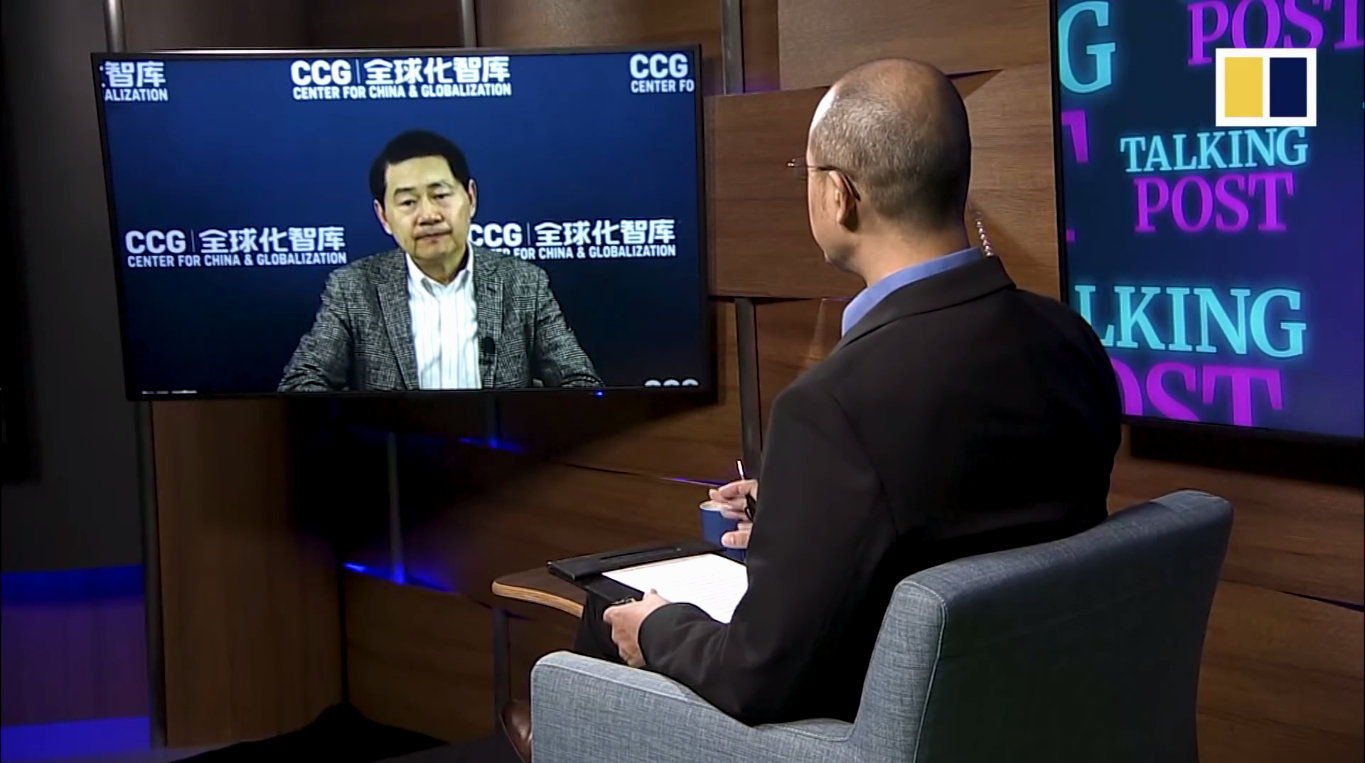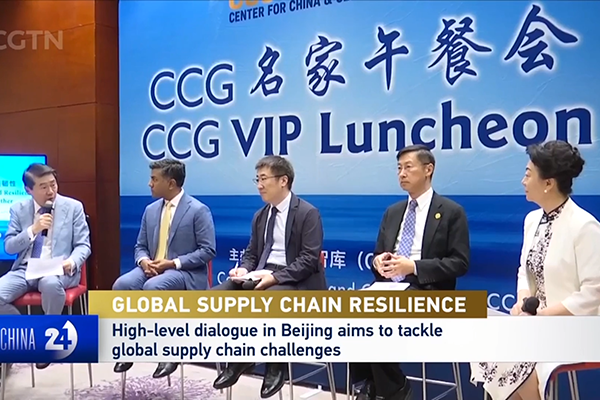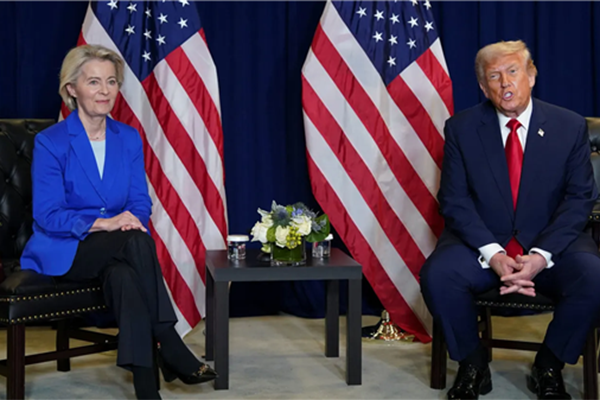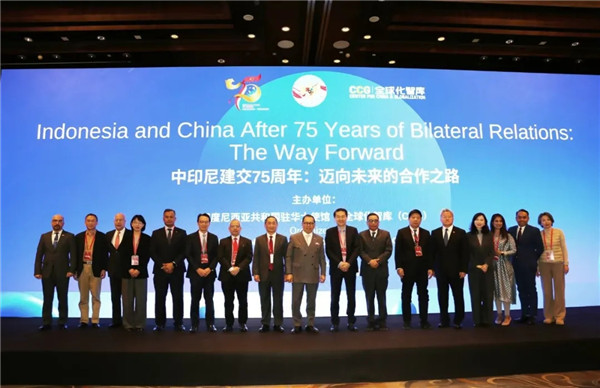[SCMP]Wang Huiyao on Talking Post with Yonden Lhatoo
December 25 , 2021
Think tank founder Wang Huiyao on the ‘uphill battle’ to explain China to the world
■ To avoid misunderstanding and mistrust, more needs to be done to explain the country’s system and values, he tells Talking Post
■ The root of the problem is a geopolitical failure to accept China’s rise and its rightful place in history, Wang says
China needs to do more to explain its system and values to the world, to avoid misunderstanding and mistrust in the West, according to the founder of a Beijing-based non-governmental think tank.
In an interview on Talking Post with chief news editor Yonden Lhatoo, Wang Huiyao from the Centre for China and Globalisation (CCG) said he faced an uphill battle when speaking to Western media about China.

“We know from the very beginning it’s a tremendous challenge to communicate with the outside world. I think first, China doesn’t really have many people who speak [or have] command of good English,” Wang said.
“But particularly, I think China has a different system, different values, maybe a different history and culture.”
Wang said the role of CCG is to try and be a bridge, but also to look objectively at what is happening in China, as well as what is going on in the outside world.
Asked if there was a credibility deficit in the Chinese narrative, Wang said this was probably true, and suggested journalistic exchanges between China and Western countries could help to fix the gap.
“I think we should [also] invite more foreigners to come and see China because, if you look at… what’s happened infrastructure-wise, the lifting [people out of] poverty – hundreds of millions of people – and then the tourism boom and things like that, should really impress all foreigners who come in,” he said. “Seeing is believing.”
Wang said China was starting to develop some common narratives, including around its own “consultative democracy” and the country should use that kind of language more. “You and I are not that different, but maybe we have a different methodology of doing democracy… China should do more to really explain better.”
On Xinjiang, Wang said there were no restrictions on foreigners, including journalists, visiting the region at the centre of allegations of human rights abuses against the largely Muslim population.
“It’s just that some journalists say, ‘oh I’m going to Xinjiang. I want to visit the dissident. I want to visit the guy who has been anti-Chinese government and has been put in prison.’ Then China probably has a problem with that. But in general, the social visit… has no restriction at all,” he said.
Wang said Western media journalists who visited Xinjiang had already drawn their own conclusions before they arrived. “And then they are just trying to justify their conclusion and trying to find things to do that, which is not true, of course.”
Turning to Afghanistan, Wang said he had been impressed with US Joe Biden’s declaration that his government would no longer seek to “nation build” in other countries.
“Which means they are not going to really export their values, impose democracy to a country that is not mature, not ready for it,” he said. “I hope that attitude can be applied to Xinjiang, can be applied to Taiwan, can be applied to many situations like that.”
Wang said China wanted to see “a stable, healthy and prosperous Afghanistan” and he was optimistic that the country would do fine without international interference or the geopolitical influence of the big powers.
“China is hoping to really help on infrastructure, maybe help exports, help Afghanistan to stand on its own feet. And that is really great to facilitate regional peace and stability,” he said.
On the South China Sea, Wang pointed out that during the first 20 years of the People’s Republic, the country had not been ready to be more active in the disputed waterway.
“But with China’s recent rise economically, there is a lot of import, export, so the South China Sea has become busier. And China actually, of course, wants to make sure it has its rightful place there,” he said.
“But that doesn’t mean China doesn’t consult other countries, or the Asean countries, the [South China Sea] code of conduct, and things like that… I am confident that countries in the region and China can solve this thing themselves.”
Wang said freedom of navigation – the rationale for the frequent passage of military vessels from the US and its allies through the waterway – had never been a problem.
“The issue is that if the US, if other countries [like] the UK or France or other Western countries send… warships, regularly, hundreds of times to the South China Sea, that could be a problem. That could really trigger some conflict potentially,” he said.
Wang agreed that the situation with Taiwan was growing dangerous, with a “huge risk” of friction or even a hot war.
“If you see… all those military exercises conducted around the South China Sea, around Taiwan Strait, that’s very, very dangerous,” he said. “I mean, China has to defend, China has to react. So we really have to solve the root of the problem.”
In Wang’s view, the tensions over the South China Sea and Taiwan are symptoms of the geopolitical situation, rather than the cause.
“The root of the problem is that we really have to reinvigorate this geopolitical situation, we have to really accept China’s rising. We have to accept China’s rightful place in history and rejuvenation of the old country, like Chinese civilisation,” he said.
From SCMP, 2021-12-25






